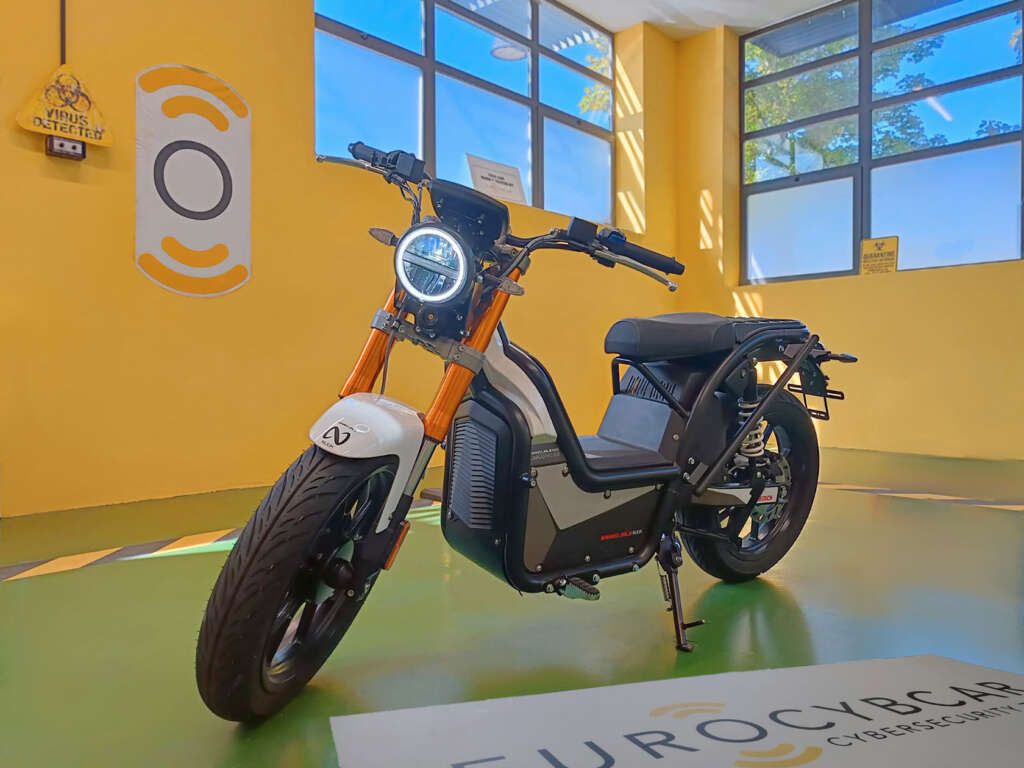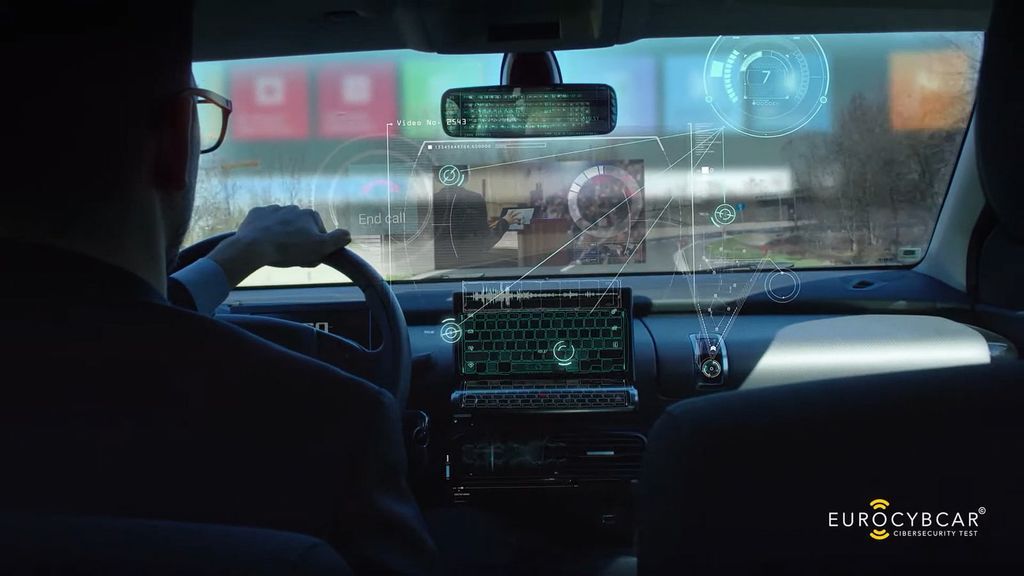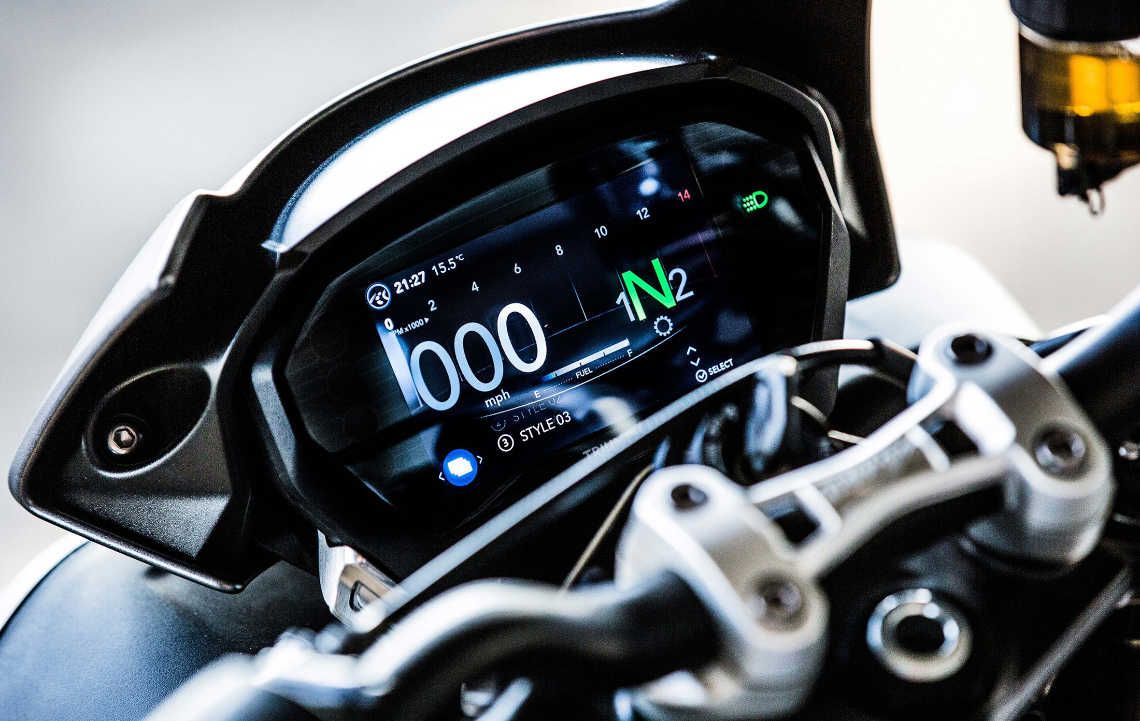Just as any computer is vulnerable to cyber crime, the increasing levels of electronics in vehicles is making them similarly exposed. The first vehicle to be officially cyber-secure is a motorcycle.
The Cyber-Secure Motorcycle
There was a time when all you needed to secure your motorcycle was a good strong lock and something immovable to lock it to. We used to think it was a a pain in the arse but it was sadly necessary and, apparently, even more so today with bike theft being at all-time high levels in big cities around the world.
However, there's a new type of crime that our vehicles are exposed to although, up to now, it's not been seen as too much of a threat. That is all about to change with the rising proliferation of electric vehicles and the amount of electronics that are needed to keep them going. We're talking, of course, about Cyber Crime.
We're all at risk of having sensitive information hacked from our phones and computers with varying degrees of inconvenience and/or danger. Having your motorcycle or car hacked doesn't appear to fall into the same category but it could cause problems, nonetheless.
The most obvious piece of cyber crime against your car or bike would be to copy the ignition key's signal, enabling the thief to steal the vehicle and keep it stolen even when out of range of the original key. But what about access to the bike's Bluetooth and GPS, your bike's information on your phone (via the manufacturer's app) and even the bike's adjustable functions via the TFT dash? Stop you opening the petrol cap, forcing you to leave the bike and leaving it open to be stolen. If We're talking about cars, how about if they could lock you out of your car.. or lock you in it!
Sound far-fetched? Well, consider this: what if your vehicle could be remotely manipulated, taking control of the steering or brakes by someone with intent to do some harm: stealing the driver’s personal information – phone contacts and messages, location, photos, route being taken, with the aim of guiding the user to a dangerous destination, etc.
Maybe it's not all that far-fetched and now there is legislation in place - UNECE/R155 - for protecting a vehicle from cyber crime, put in place by the UNECE (United Nations Economic Commission for Europe). This states that cars, buses, trucks, vans, trailers, motorhomes and motorcycles that are homologated from July 2022 in the European Union and other UN countries, must be cyber secure.
You might not have heard of the NUUK Cargopro electric motorbike, but it has made history by becoming the first vehicle to pass the cyber protection test, measuring and evaluating the level of cybersecurity of a vehicle, according to the requirements of the UNECE/R155 regulation. It demonstrates the implementation of effective means to minimise the risk of the vehicle's electronics being hacked.
There are three types of tests: physical access, remote access and applications. In the physical access test, the firm checks if a cybercriminal could potentially manipulate – through the vehicle's OBD port – the vehicle's anti-lock braking system (ABS), brakes or steering, and if a virus could be introduced through a USB port that could paralyse the vehicle's systems and put passengers' lives at risk.
In the remote access test, wireless systems such as Bluetooth, Wi-Fi and keyless start-stop are analysed to check the security of the vehicle and substantiate if the owner's private data is at risk.
Lastly, application testing searches for vulnerabilities in applications built into the vehicle's operation system, as well as other apps – which may enable remote vehicle controls – a user may download to their smartphone. This is a vital test, as if a cybercriminal manages to breach such applications, they could access the vehicle's systems remotely and deliberately cause an accident.
Now, all of this sounds really boring and perhaps the product of really paranoid minds but there are literally thousands of cases of vehicles being affected by cyber attacks. Of course, history has told us that closing one door to hackers only encourages them to find another one to open but that doesn't mean we should ignore locking the door in the first place.



